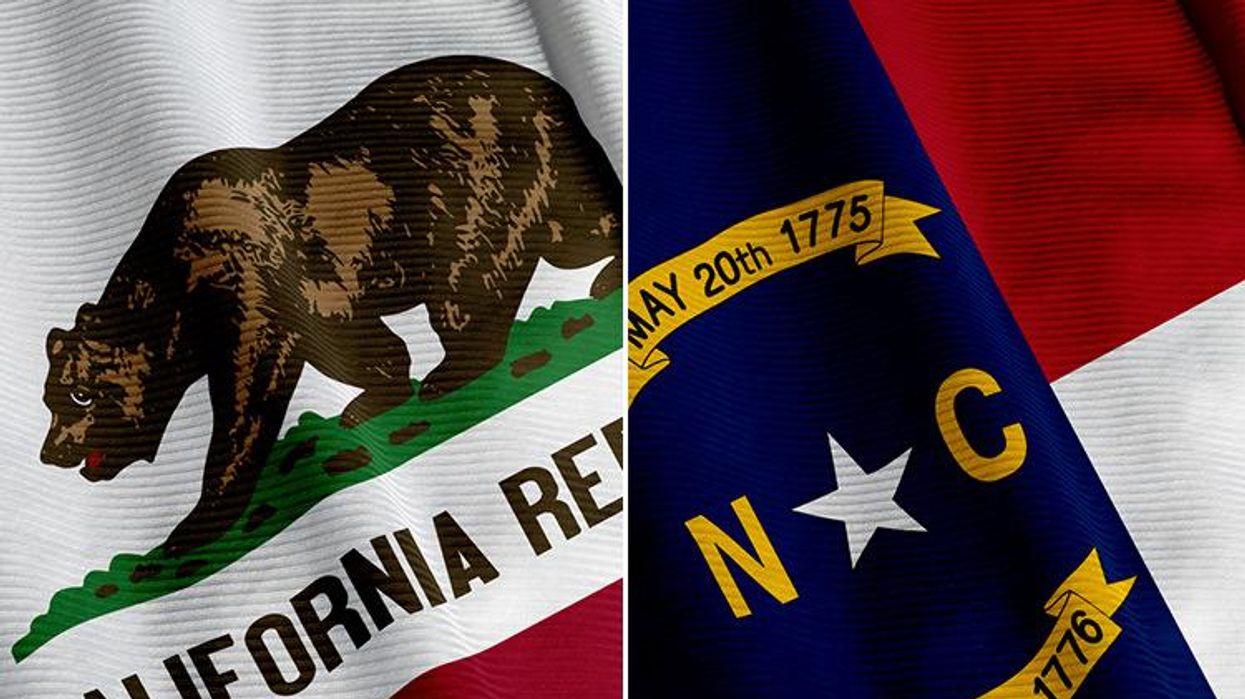All Rights reserved
By continuing to use our site, you agree to our Privacy Policy and Terms of Use.
Your support makes The Advocate's original LGBTQ+ reporting possible. Become a member today to help us continue this work.
Not so fast, North Carolina.
Last year, North Carolina lawmakers passed the infamous "bathroom bill" also known as HB 2, which prevented local municipalities from setting their own rules prohibiting discrimination and required transgender people to use a bathroom inconsistent with their gender identity. The bill immediately generated backlash from a number of civil rights groups including the ACLU and Equality North Carolina. Businesses from Paypal to Adidas diverted plans to invest in the state, costing hundreds of jobs. The NCAA, which generates hundreds of millions of dollars for the state, announced they would avoid scheduling games in North Carolina as long as HB 2 is on the books. All told, the Associated Press estimated that if kept in place, HB 2 would have cost the state more than $3.76 billion over the next twelve years.
In California, we took a stand against North Carolina's bigotry when we passed Assembly Bill 1887, which prohibits state-funded travel to states with anti-LGBT laws, including North Carolina. We collectively decided that the spending of our state funds must be aligned with our state values and we do not tolerate discrimination against LGBT people.
Feeling this heat, North Carolina lawmakers purported to repeal HB 2 with the passage of HB 142 last Thursday, just in time for the NCAA's site selection. But it was all smoke and mirrors. Under HB 142, local non-discrimination ordinances are still void and local governments are still prevented from passing protections for LGBT citizens, including laws protecting restroom access for transgender people. Make no mistake: HB 142 only protects North Carolina's economic interests, not those of its residents. For that reason, California's travel ban remains in effect.
In California, we quickly denounced HB 142 and called upon the NCAA to uphold its ban on hosting championship games in the state. Unfortunately, the NCAA lifted their ban despite outcry from human rights and LGBT groups across the country.
We understand that the bans and boycotts are inconvenient but this is about so much more than sports. This is about ensuring all Americans receive equal protection under the law.
The reality is HB 2 generated negative media attention and shined a light on the state's discrimination, making it unpalatable for businesses to be associated with the state. But numerous other states have bigotry on their books and continue to pass anti-LGBT laws. Last year, Kansas enacted Senate Bill 175, which authorizes campus based student groups to ban LGBT students from joining. Mississippi's House Bill 1523 enacted July 2016, allows businesses to discriminate against LGBT people. Tennessee's Senate Bill 1556, enacted March 2016, allows therapists to decline service to LGBT people.
While North Carolina's HB 2 generated significant negative media attention for its sweeping rollback of LGBT protections, these laws also contribute to a culture of exclusion and discrimination against LGBT people. We have to hold all local governments accountable for discriminating against LGBT people, not just the ones that attract the most negative media attention.
The point is there has been a recent wave of anti-LGBT laws and under the current administration, more lawmakers may be emboldened to pass so-called "religious freedom" laws of their own. We must continue to place pressure on states that codify discrimination and hold them accountable when they try to skirt the consequences. Entities like the NCAA, Paypal, and California have the economic fortitude to influence states to repeal their anti-LGBT laws but we have to make sure they do so in good faith and hold them accountable when they don't.
EVAN LOW is a California State Assemblymember who represents the Silicon Valley and San Jose. He is chair of the California Legislative LGBT Caucus.




































































Charlie Kirk DID say stoning gay people was the 'perfect law' — and these other heinous quotes